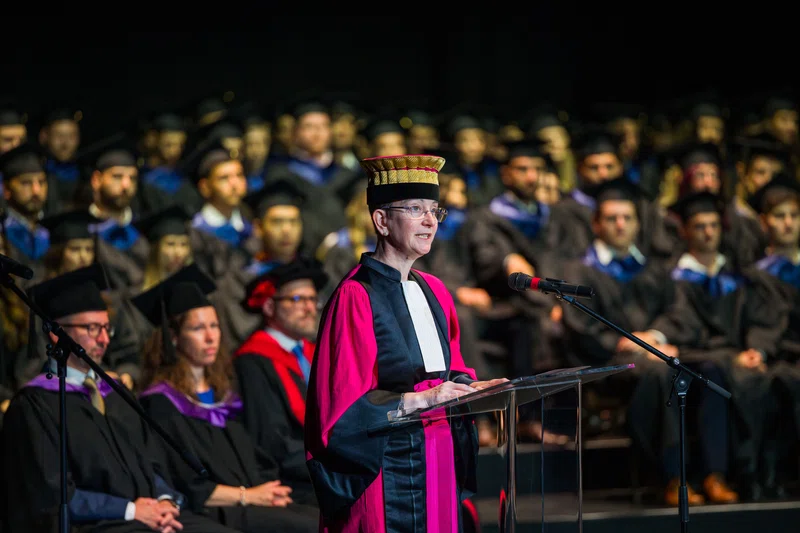Starting university is an exciting chapter in life—full of opportunities, challenges, and discoveries. For many students, the first instinct is to focus on grades and academic achievements. While these are undeniably important, Professor Harriet Dunbar-Morris PFHEA, NTF, Pro Vice-Chancellor for Academic Affairs and Provost at the University of Buckingham, reminds us that education is about much more than exams and certificates.
In her message to new students, Professor Dunbar-Morris emphasized that true success extends beyond academic performance. While knowledge and subject expertise are vital, the qualities that truly shape your future are often learned outside the lecture hall. Skills such as teamwork, adaptability, creativity, and resilience not only prepare students for their professional careers but also help them navigate the unexpected twists and turns of life.
One of the central points she highlighted is the importance of collaboration. Success is rarely the result of an individual’s efforts alone. Whether in business, research, or creative industries, it is the ability to co-create, to bring together diverse perspectives, and to find solutions collectively that drives true innovation. In today’s interconnected world, employers are increasingly looking for graduates who can contribute to teams, communicate effectively, and embrace different viewpoints.
Professor Dunbar-Morris encouraged students to make the most of the opportunities available during their time at university. This includes joining clubs and societies, engaging in group projects, attending workshops, or volunteering. Each of these experiences helps build transferable skills that go far beyond the classroom.
Equally important, she advised, is the habit of self-reflection. Taking time to recognize the skills you are developing—whether it’s problem-solving through coursework, leadership in student organizations, or resilience during challenging times—can help you understand your strengths and areas for growth. These reflections not only prepare you for job applications and interviews but also empower you to become a more well-rounded individual.
Above all, her message was one of encouragement: success is a shared journey. It grows through contribution, collaboration, and collective effort. By embracing every opportunity, reflecting on personal growth, and supporting those around you, students can build the foundation for a fulfilling career and life.
As new students begin their studies, this reminder serves as an important compass: while grades matter, it is the lifelong skills, relationships, and experiences gained along the way that truly define success
